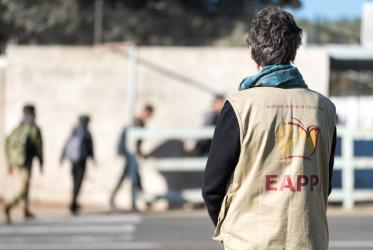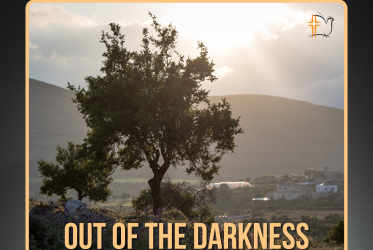Before 1991 the children used to go to school either to Bethany or Jericho, and though they were long distances away, they would walk. Eid Jahhalin, a Bedouin community leader in the village, explains that the community asked the authorities to build a school nearby or at least to have a school bus, “but the Israeli authorities did not allow it,” he said.

Community leader Eid Jahhalin.
With the help of international volunteers and the support of international organizations, the community members managed to build a school made out of car tires and mud in order to allow the children to have safe and local access to education. This has been a huge success, and today the school serves 200 children not only from the village but also from other nearby Bedouin communities.
But, as Israeli settlements in the area expand, there are now military orders to demolish the Bedouin houses in Khan Al-Ahmar and to relocate to a different place.
Heavy Israeli restrictions on the movement in and out of Khan Al-Ahmar also mean that the community cannot sell their goods in the markets of Jerusalem. “We can reach Mecca, we can reach Rome but we can’t reach Jerusalem,” says Jahhalin, and this has a severe impact on the village economy.
The Israel authorities don’t allow any public transport to stop near the community. The authorities have connected Israeli settlements in the West Bank to infrastructure—roads, water, electricity—but denies even the right to build a house to the Bedouin community.
“The Israeli authority is targeting the Bedouin communities in order to expand their settlements in the Palestinian land,” says Jahhalin. “They want us out of here in order to bring a settler and make him live in our place. No way we are letting this happen; we are staying here on our land.”
While there appears to be no space for optimism, Jahhalin says they don’t lose hope. “One day the free people in this world will put some pressure on the Israeli government to stop this.”
This feature is one in a series of stories for an Easter Initiative by the World Council of Churches Ecumenical Accompaniment Programme in Palestine and Israel (WCC-EAPPI). People living under occupation have shared their daily life experiences of injustice as well as their hopes for the future.








